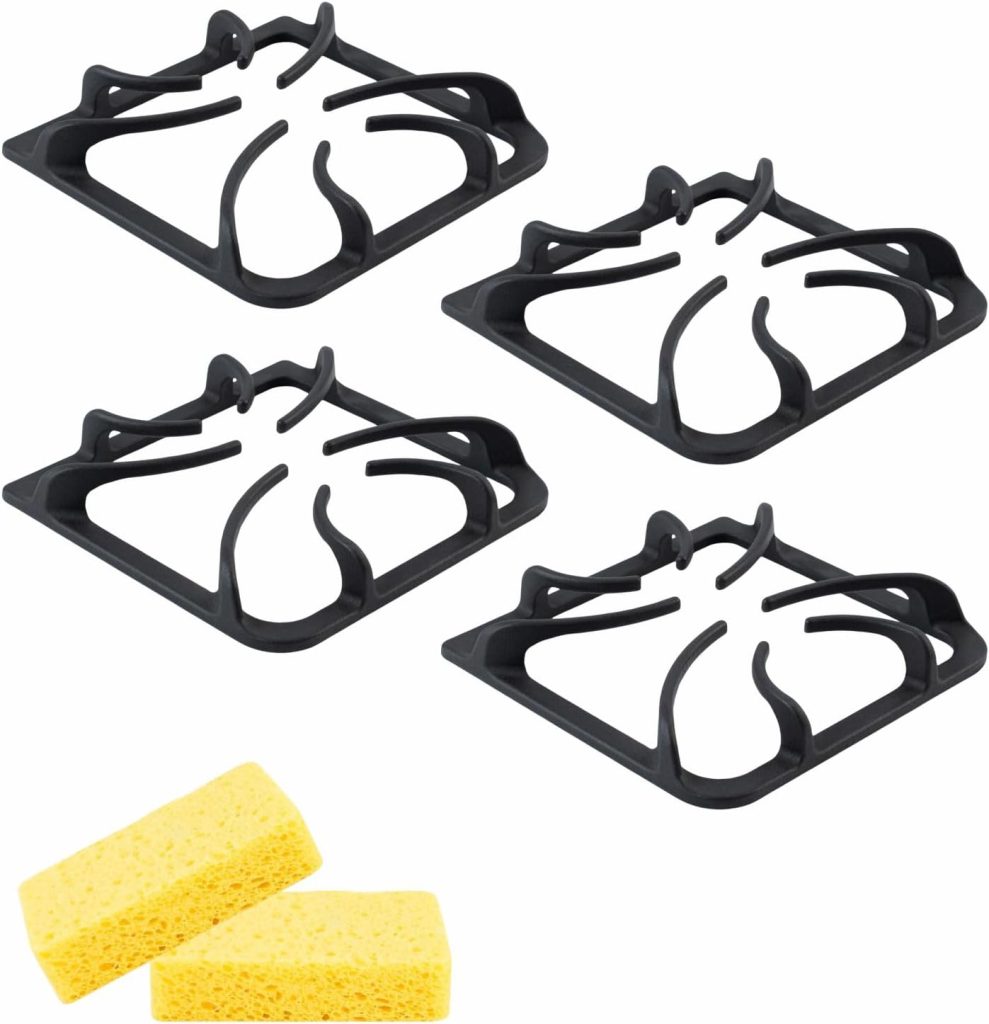
Cast iron stove grates are known for their durability, heat retention, and classic look—but they’re also prone to one pesky problem: rust. Unlike stainless steel, cast iron can corrode if not cared for properly, especially after cleaning.
In this guide, you’ll learn how to clean cast iron stove grates, how to remove rust using everyday ingredients, and how to season your grates to protect them for the long haul.
Why Choose Cast Iron Grates?
Compared to stainless steel or porcelain-coated options, cast iron is:
- Extremely durable
- Scratch-resistant (even when scrubbed hard)
- Excellent for even heat distribution
The only challenge? Rust prevention.
Key Takeaways Before You Start Cleaning
- Always check the manufacturer’s instructions for cleaning and seasoning.
- If you’ve purchased used cast iron grates, inspect them for rust buildup.
- Seasoning is crucial to keep rust at bay after cleaning.
How to Clean Cast Iron Stove Grates
If your cast iron grates are coated in rust or grime, don’t worry—it’s reversible. You don’t need any expensive chemicals either. Here are three proven DIY cleaning methods:
1. Abrasive Scrubbing (No Chemicals Needed)
For light rust or surface grime, start with the simplest method:
- Use steel wool, a wire brush, or a scouring pad
- Scrub with elbow grease until rust and residue are removed
- Wipe clean with a damp cloth and dry immediately
⚠️ Don’t let water sit on the grates. Moisture = rust.
2. Baking Soda Paste
Great for mild rust or burnt-on residue.
What you need:
- 3 parts baking soda
- 1 part water
Steps:
- Mix into a thick paste.
- Apply the paste generously to the rusted areas.
- Let it sit for a few hours.
- Scrub using steel wool or a stiff brush.
- Rinse, dry, and repeat if needed.
3. White Vinegar Soak
A favorite for heavier rust removal.
Steps:
- Soak the grates in white vinegar for 30–60 minutes.
- Use a wire brush to scrub the rusted areas.
- Rinse thoroughly and dry with a towel.
✨ Bonus: Add a tablespoon of baking soda to the vinegar for extra fizzing power.
4. Kosher Salt Paste (Heavy-Duty Scrub)
Salt is abrasive and works wonders on deep rust.
What you need:
- ½ cup kosher salt
- Small amount of water to form a thick paste
Steps:
- Apply paste directly to rusty areas.
- Scrub with steel wool or a wire brush.
- Repeat if necessary.
- Switch to a baking soda paste for final polishing.
How to Season Cast Iron Stove Grates
Once your grates are clean and rust-free, don’t stop there. If you leave them bare, they’ll rust again.
Steps to Season:
- Preheat your oven to 350°F (175°C).
- Coat the grates in a thin layer of vegetable oil (or flaxseed oil).
- Place them on a baking sheet lined with foil (to catch drips).
- Bake for 1 hour, then let cool inside the oven.
🔁 Repeat this process every few months—or after every deep clean.
Simple Maintenance Tips
- Avoid soaking grates in water overnight.
- Dry them immediately after each wash.
- Re-season after every deep clean.
- Store in a dry area or leave in the oven after use.
FAQ: Cleaning Cast Iron Stove Grates
Q1: Can I use soap to clean cast iron grates?
A: Yes, but make sure to rinse thoroughly and dry immediately. Soap can strip the seasoning layer.
Q2: How do I prevent rust after cleaning?
A: Always dry completely and apply a light coat of oil. Seasoning forms a protective barrier against rust.
Q3: Can I put cast iron grates in the dishwasher?
A: No. Dishwashers can remove seasoning and promote rust due to prolonged moisture exposure.
Q4: What if my grates have enamel coating?
A: Enamel-coated grates can usually handle gentler cleaning methods and are more rust-resistant—but avoid metal brushes that may chip the enamel.
Q5: How often should I clean cast iron stove grates?
A: Wipe down after every use. Deep clean and re-season every 1–2 months, depending on usage.
Leave a Reply
You must be logged in to post a comment.